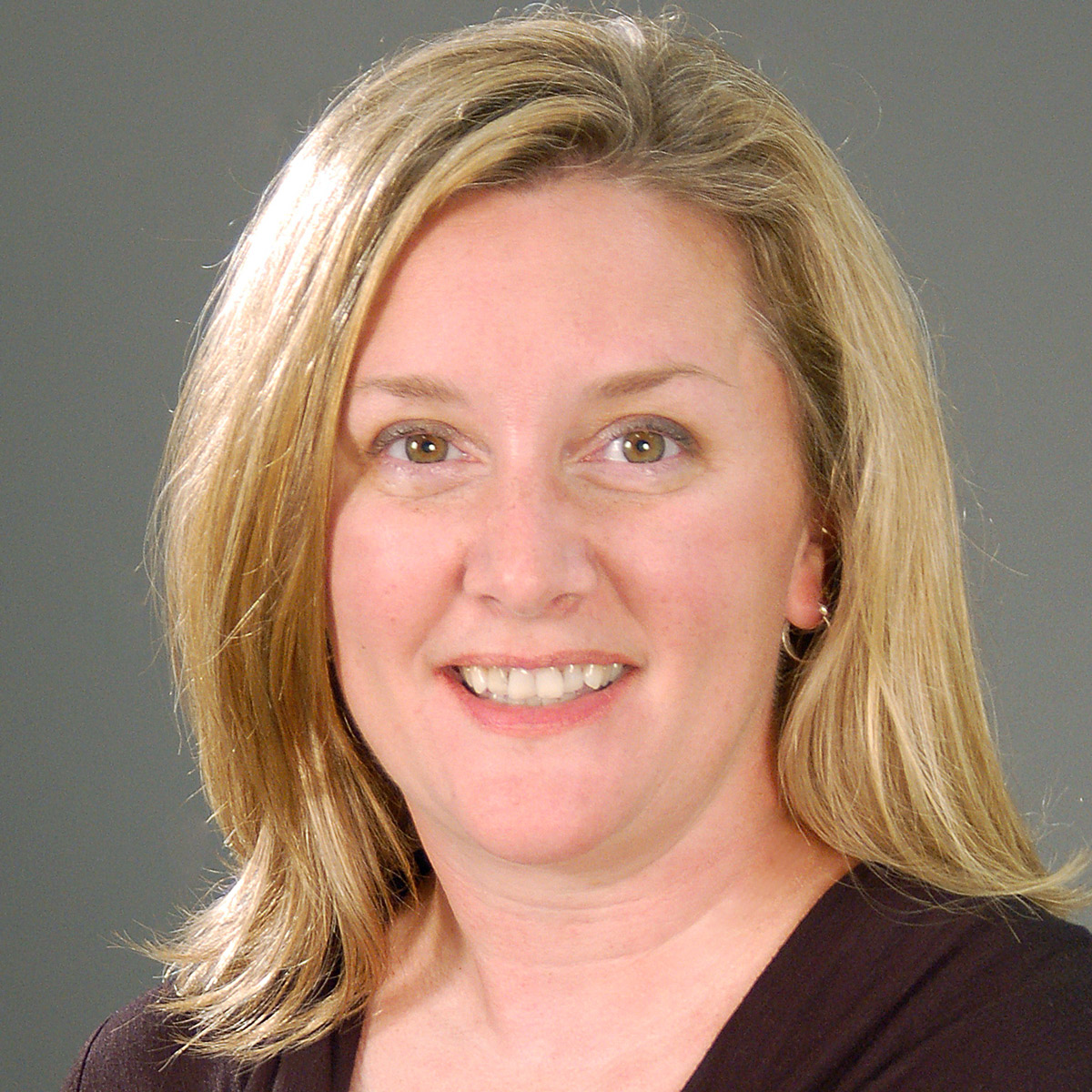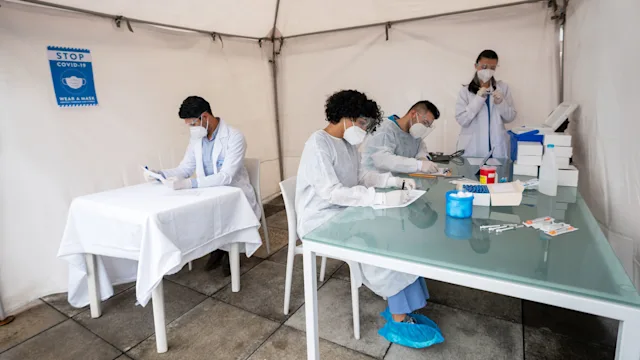Key takeaways:
Patient Charlene Murphey died on December 27, 2017, after nurse RaDonda Vaught erroneously administered a dose of vecuronium, a powerful paralytic.
Vaught was criminally charged with reckless criminal homicide and impaired adult abuse. She was later convicted of criminally negligent homicide and abuse of an impaired patient.
The overwhelming response from the medical community centers around the worry that potential criminal charges resulting from a medical error will deter future error reporting.
There are two kinds of healthcare providers (HCPs): Those who have made a medical error, and those who will make a medical error.
If you work in healthcare long enough, you will make a mistake. We are all human, and the unfortunate reality is that mistakes happen. When they happen, we hope our mistakes will be minor or fixable. But in some cases, like that of nurse RaDonda Vaught, the outcome is devastating.
HCPs have watched the case of Vaught, anxiously awaiting the outcome. Below, we explore RaDonda Vaught’s story and its implications for medical error reporting among HCPs.
Who is RaDonda Vaught, and what did she do?
RaDonda Vaught was a registered nurse in the neurointensive care unit at Vanderbilt University Medical Center. On December 26, 2017, Vaught worked as the unit's “help-all” nurse while also precepting a trainee.
That day, Vaught was called to the radiology department to administer a sedative to patient Charlene Murphey, 75, before she underwent a PET scan. The ordered medication was Versed. Murphey had been hospitalized December 24, 2017, with a subdural hematoma and was improving. The PET scan was ordered to look for the causes of her illness before her planned release from the hospital.
Vanderbilt University Medical Center had been experiencing issues with their electronic medication cabinets and the hospital's electronic health records system. The technological issues had created a need for frequent overrides in the medication cabinets to get necessary patient medications. To avoid delays in medication administration, it had become a standard practice at the hospital to override the cabinet to avoid delays in medication administration.
Vaught searched for Versed by typing in the letters “VE.” The medication cabinet did not cross reference for the generic midazolam. Instead, the cabinet autopopulated the drug vecuronium as a choice.
When Vaught did not see Versed as an option, she instead removed a vial of the medication vecuronium, a powerful paralytic. As was standard practice at the hospital, Vaught entered several machine overrides to get vecuronium, instead of Versed, from the medication cabinet.
After removing the vial of vecuronium, Vaught noticed the vial contained a powder that required reconstitution. Versed (midazolam) is a liquid. Vaught reconstituted the medication and administered a dose to Murphey. Vaught did not remain with Murphey to monitor the effects of the medication as she was taken back for her scan. There was no identified protocol for monitoring a patient in the radiology department at that time. Since the incident, Vanderbilt University Medical Center has added a transport and monitoring policy as part of their corrective plan.
Approximately 30 minutes later, as Murphey was being removed from the scan, she was found to be unresponsive. Resuscitation began, but she suffered cardiac arrest with partial brain death. The following day, December 27, 2017, Murphey was withdrawn from life support and died.
When Vaught heard a call for a code in the radiology department, she realized the error she had made. Vaught immediately reported her error, taking full responsibility for her actions and the outcome.
What happened next
On January 3, 2018, Vaught was fired from Vanderbilt University Medical Center for not following the five “rights” of medication administration.
The five “rights” of medication administration are a method for giving medications safely that all nurses are taught to follow when a medication is given. The “rights” include:
Give the medication to the right patient
Give the medication at the right time
Give the medication by the right route
Give the right medication
Give the right dose of medication
Vanderbilt University Medical Center notified the Tennessee state Board of Nursing (BON) of Vaught’s error. In 2018, the BON determined that Vaught did not violate statutes or rules governing nursing practice, and no action was taken against her by the BON.
However, the hospital failed to report the incident to state or federal authorities, as required by law. The hospital settled with Murphey’s family for an unknown amount in exchange that they not speak about the death or the error.
Not until October of 2018 — when an anonymous tipster contacted the Tennessee Department of Health and the Centers for Medicare & Medicaid Services (CMS) regarding the death — was the case looked at again. The CMS threatened to take away Medicare reimbursement to the hospital if the incident was not properly investigated and addressed. A surprise hospital inspection ensued, and CMS released details of the error. Vanderbilt University Medical Center submitted a plan of correction without further penalty.
The Tennessee BON then reversed their prior decision regarding Vaught, revoking her nursing license and charging her with:
Abandoning or neglecting a patient who required care
Failing to maintain an accurate patient record
Unprofessional conduct related to nursing practice and the five “rights” of medication administration
On September 27, 2019, the Tennessee BON filed disciplinary action for the 3 violations and fined Vaught $3,000. In a landmark case, Vaught was criminally charged with reckless criminal homicide and impaired adult abuse.
Medication errors causing deaths are taken very seriously, and consequences such as loss of license or fines are not unusual; however, until now, no nurse has ever been criminally charged for a medication error. Licensing boards and civil courts usually handle medical errors. Vaught’s case sets a precedent that an HCP can face criminal charges for a medical error.
How common are medical errors?
Medical errors are a leading cause of illness, injury, and death in the U.S.
Consider the following statistics regarding medical errors:
In the U.S., 4 in 10 Americans have experienced or know someone affected by a medical error.
Medical errors are the third-leading cause of death in the U.S., with about 200,000 deaths each year.
Medical errors in the U.S. healthcare system are estimated to cost more than $17 billion each year.
The estimated rate of medication errors is between 8% to 25% of all medications given.
The U.S. Food and Drug Administration receives over 100,000 reports of medication errors annually.
Medical errors occur more frequently when staff members are fatigued or when they don’t have enough time to check, and recheck, safety measures. This is often a result of being overworked.
In 1999, the Institute of Medicine recognized the high cost of medical errors and that HCPs are not infallible. Its landmark report, To Err is Human, focused on patient safety and preventing medical errors without a punitive approach. Two decades later, the medical error rate has improved but remains high, and, now, HCPs are concerned about criminal charges if errors are disclosed.
The outcome of Vaught’s case
After delays due to the COVID-19 pandemic, Vaught’s trial began in March 2022. On March 25, 2022, Vaught was found guilty of criminally negligent homicide (not reckless homicide, as initially charged) and abuse of an impaired patient. She faced up to 8 years in prison.
On May 13, 2022, as the healthcare community waited to hear the outcome, the judge issued Vaught’s sentence. Vaught was sentenced to 3 years of supervised probation under a diverted sentence.
If she successfully completes probation, she will not require any prison time and the charges will be completed, clearing Vaught’s record.
The response of the healthcare community
While many HCPs disagreed with the guilty verdict in the Vaught case, the diverted sentence was felt to be the best possible outcome. Vaught will never again work as a nurse but will avoid jail time and clear her record, as long as she completes her probation.
Many medical organizations weighed in with their thoughts on the case. In a profession already short-staffed, strained, and facing numerous pressures, they are concerned this case will have a long-lasting negative impact on the profession. Nurses worry that, as the pandemic continues to contribute to burnout and exhaustion, medical errors could become more common and lead to even more criminal charges.
The American Nurses Association (ANA) strongly supported Vaught throughout the case. The ANA, like many other organizations, felt that the criminal prosecution of a nurse for a medication error sets a precedent that would impact future reporting of healthcare errors.
According to the ANA, some medical errors are inevitable and prosecution is not an effective preventative mechanism. Instead, the ANA supports a full and confidential peer-review process to examine errors and recommend system improvements and corrective action plans.
In a letter to the judge prior to Vaught’s sentencing, both the ANA and the Tennessee Nurses Association submitted a letter requesting leniency in the sentence. They cited that:
Nurses provide care across many levels and settings in demanding work environments filled with challenges.
A nurse’s typical shift is fast-paced and high stakes. Nurses deal with constant patient turnover, inadequate staffing, varying levels of patient acuity, exposure to infectious disease, and risk of work-related injuries or violence.
Because of the nursing environment, the delivery of safe patient care is impacted, and nurses work in conditions that increase the likelihood of adverse events from tragic mistakes.
HCPs recognize that even good, competent providers are not infallible and may make mistakes. But they feel that, rather than criminal prosecution, the problems with the system that contributed to the error must be addressed. HCPs worry that criminal charges will not result in improved safety and may further a culture of secrecy where HCPs hide errors because of the fear of prosecution.
Medical experts worry that this case will worsen an existing HCP shortage. HCPs who may already be experiencing burnout and are on the fence about continuing their career may find this case to be just the push they needed to leave the profession entirely. Students who may have been considering a healthcare career might rethink their choices when faced with the potential for criminal charges of potential errors.
The bottom line

Why trust our experts?


The medical error made by RaDonda Vaught resulted in the death of patient Charlene Murphey. The lives of Murphey’s family and Vaught will never be the same, and they will both live with the trauma of the error.
Vaught is the first HCP ever criminally prosecuted for a medical error, setting a precedent with implications for disclosure of and handling medical errors in the future. The medical community worries that this case will cause HCPs to avoid disclosing errors and that the system faults that lead to errors may not be addressed out of fears of criminal prosecution.














